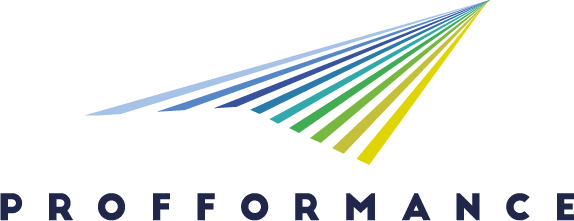TBI&HER
Implementation of Non Goverment Organisations (NGO) as Teaching Basis in High Education and Research
- 01 - Education
- 07 – Engineering, manufacturing and construction
- 09 – Health and welfare
- Other:
sport science education
4. Impact and mission with and for society
- Research-based teaching and learning
- Extra-curricular teaching for citizens, stakeholders, students
- Service-learning and active citizenship learning for impact in society
- Active involvement of students in teaching-related research projects to improve their learning
- Joint practices with social partners and stakeholders of civil society for empower students to active citizenship
One of the main problems of kinesiological education and sport is the insufficient connection between the stakeholders. The Faculty of Kinesiology in Split (KIFST) designed a model of cooperation with non-government organizations (NGO), aimed to improve sports results, educational and research processes. The aim of the innovative idea is based on cooperation in the realization of the complementary goals of the involved stakeholders. Based on the results of a public call for tender, an NGO is given a teaching basis (TB) status which is re-evaluated every year based on the assessment of a) teaching conditions, b) science popularization activities, c) joint project applications, d) providing research samples, e) writing and publishing final theses and scientific articles. The Croatian Science Foundation accepted the financing of the research Project (IP-2020-02-3366) proposed by the consortium composed of KIFST, the School of Medicine in Split, Ministry of Tourism and Sport (MINTS), the City of Split, Center of Excellence of Split-Dalmatia County, Genos d.o.o. laboratory, European Institute for Talent, Education, Research and Development (CAF), and 5 national sports federations (NSF), which created the preconditions for the realization of the program. The TB CAF and the City of Split provided the facilities (CRO SPORT TALENT LAB). The NSFs provided the research sample and participation of experts (coaches) in the education process. The MINTS did the project promotion. The innovative model was implemented in Systematic kinesiology 1 within the Graduate study of Kinesiology. A University textbook was written in Croatian and English language, and the program included KIFST and Erasmus students. The main outcomes are: 1. To strengthen research and educational potential by connecting the scientific, public, and private sectors; 2. To improve the conditions for teaching; 3. To improve the conditions for research work (laboratory, equipment, and sample); 4. To organize education in handling modern technology. Activities (outputs) are: 1. Implementation of the Systematic kinesiology 1 class; 2. Application to public calls for financing; 3. Education in using modern technologies. Results are: 1. Systematic kinesiology 1 classes realized; 2. Research sample (n>=500) provided; 3. Programs applied to public calls (n>=1); 4. Final scientific paper written/published (n=>1). 5. Students and coaches educated for handling modern technologies (n>=5).
Methodology
Tools, equipment, technology used
Outcomes and outputs, main results
Lessons learnt
Adaptability and sustainability of the best practice (for other institutions)
Promotion of best practice
Scope and impact
- Course/department level
- Faculty level
- Institutional level
- Cross-institutional level
- National level
- EU/EHEA/International level
6.1 Digitalization
- Outstanding, innovative, excellent practices of online / blended / hybrid learning
- Innovative, novel methodology in using digital tools/devices in teaching
- Innovative use of digital administration tools
- Digital skills development and assessment both general and profession-related, embedded in course design, in teaching and assessment
- Digital scientific sources used in T&L
Reasoning: Digitization is present in most of our good practice model. Before arriving, Erasmus students have the opportunity to get acquainted with the contents of the course through the moodle system, and part of theoretical teaching is done electronically. In their work, students use digital technologies to collect data (SurveyMonkey, tablets, etc.). During the implementation of the program, students acquire digital skills that enable the practical use of modern research equipment available in our lab.
6.2 Internationalization
- Outstanding practices of international online collaborative learning
- Students engagement in international projects
- Courses implemented in international cooperation (projects, co-teaching, virtual/blended mobility, etc.)
- Courses offered to international multicultural students both online and offline
- International projects/research results embedded into course development and T&L
Reasoning: Internationalization is reflected in the fact that Croatian students attend classes together with Erasmus students, which encourages international online collaborative learning and cooperation in the application of international expert and research projects. Every year, more and more students recognize this innovative approach in which, in addition to classical teaching, they participate in the practical application of acquired knowledge within the part of teaching realized at teaching bases.
6.3 Inclusion and diversity, universal design
- Inclusive course design, universally designed divers activities to meet special students' needs
- Innovative teaching methodology for inclusion and meet diverse student needs
- (Innovative) use of devices and tools for inclusion
- Alternative, flexible assessment methods for students with special needs
Reasoning: Inclusion is present in our good practice in a way that the NGO Split Sports Association of Persons with Disabilities and Split Sports Deaf Association are part of the teaching bases of the Faculty of Kinesiology in Split, which is included in training experts to work with persons with disabilities. In our Lab we contribute to the improvement of sports form of the Paralympian. Ivan Mikulić is the silver medal-winner in parataekwondo in Tokyo. (photos and videos available on the Dropbox link).
6.4 Sustainability
- Teaching material contains profession related sustainability aspects
- Social entrepreneurship projects, service-learning in the topic
- Extra-curricular student activities for sustainability
- Environmental attitude, skill development and assessment either general or profession-related
- Sustainability aspects are considered in all phases of the learning practice - "hidden curriculum"
Reasoning: Sustainability is guaranteed by students acquiring the skills of using modern technologies during the program, which are in demand on the market. Students volunteer to provide services for the community-NGO teaching bases (participate in the implementation of training and measuring of motor skills). In this way they make contacts and connections, which are a potential basis for future international project cooperation aimed at applying for public calls for scientific research and expert work
3.3 Public contact datas
| Name | Email address | Website |
|---|---|---|
| Dražen Čular | hrzz_3366@kifst.hr | https://bkrd.kifst.hr/ |

